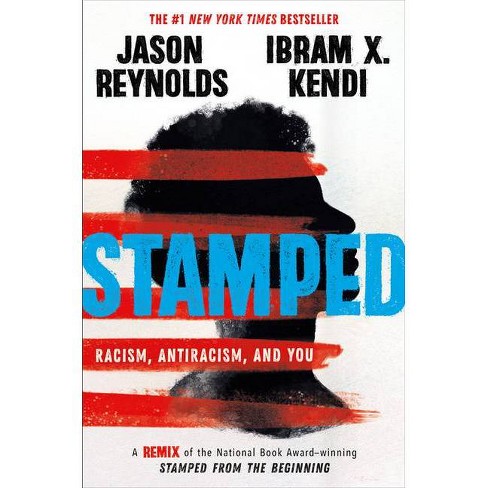The book STAMPED by Jason Reynolds and Ibram X. Kendi is a very unique book. This is not the type of book that I would just have picked up for some light reading. The book specifically goes out of its way to state that it is not a history book, but in fact it is. Forget everything that you learned in school about history. This book paints a different perspective. One that makes you go “Hmm”. One might say, lots of “Ah ha’s” and “Holy Sh*t!” painted throughout.
The entire first chapter entitled, “The Story of the First Racist”, paints a different picture of history. Just hearing the title makes you think of a European (what whites were called back then) male. Not the case. Leo Africanus echoed much of what Zurara stated about Africans at the time. His own people he described as hypersexual savages, thus making him the first racist.
Moving through the book, it describes different eras from the 1500’s through Obama. Each chapter was just reaching inside, enlightening a new perspective on how others saw our history and how the event made them feel. There was only one chapter that I really could not connect with, “Puritan Power”. This chapter goes into some theories that were around during the late 1500’s.
First, was the climate theory. The backing of this theory is that Africans were born “this way” or if the head of the continent made them inferior. The other theory floating around at this time was the curse theory. This theory uses the Bible to say that because Ham in Genesis did not listen to his father Noah that his decedents would be as the author describes “dark and disgusting”. Now this is true, that it does say that Ham’s decedents would be cursed and yes I am quite positive that people have used this to run their agenda on race, but to believe that Blacks are black because of that doesn’t make sense to me. Maybe this sticks with me growing up in a Christian home my entire life and having a father who was a pastor and learning and hearing the stories many times while growing up. Never once was that message conveyed to me either through my father or from reading the Bible. Again, to make those connections is a far reach. This is definitely something I struggled with philosophically with the book.
While struggles with philosophical stances our bound to occur, the book, in my eyes, was a great equalizer in bringing much of our history looking through others eyes. If I just take things how I see them, then I miss the meaning of servant leadership. It is impossible to truly be a servant leader if you cannot truly see how people see events that transpire.
I am grateful that I was introduced this book as it was a fantastic read, one that really stretched my mind, soul, and heart for the people that I get to work with. As I move forward, keeping different perceptions of people and events on the forefront of my mind is extremely important. When people perceive certain ideologies or various events, those perceptions become their reality unless they are tackled head on.



